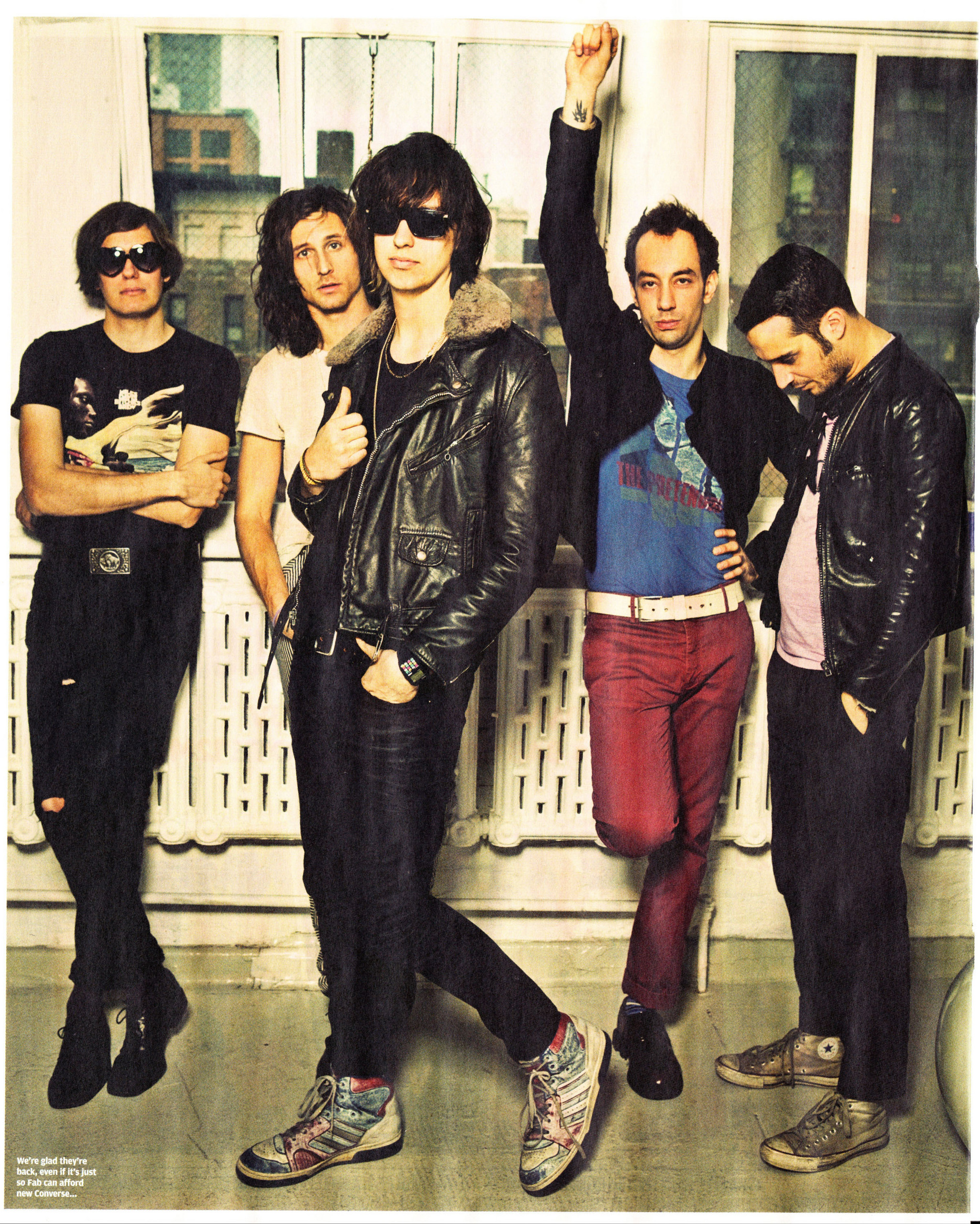By Zack Gill
Copy Editor
The Strokes’ 2001 record “Is This It” is a monument in 21st- century American music. Unfortunately, its retro-cool revivalism spawned a milieu of copy-cats, largely resigning the sound of 21st-century rock music to abhorrent vanity and simplicity.
The Strokes returns now with their fifth studio album, “Comedown Machine” and prove yet again that the band will never live up to the promise of its debut. In fact, as the members established in 2011’s “Angles,” the Strokes have fallen into the realm of self-parody. “Comedown Machine” is soulless and banal, with uninspired, calculated fake-funky songwriting that exemplifies no growth or a desire to grow; it’s apathy on vinyl.
The Strokes were formed in New York City during a magic time when everything was wonderful in the world. Forever, the band has stayed in its circa-2000 haze of “coolness.” “Is This It” is truly one of the greatest albums of the aughts, even if the urban legend that alleges lead vocalist and songwriter Julian Casablancas’ parents paid for the Strokes’ studio time to record it is true. The Strokes has always been a clash between music and image, and now image is firmly taking precedence over the music.
A slew of albums, never better than mediocre and more often than not dreadful, followed. Previously, Casablancas wrote every instrumental part for all of the band’s songs. Eventually, each member began to write his own instrumental parts. This was not at all a positive development.
There’s a saying that it’s okay for every song to sound the same on a record, as long as it’s a good song. The Strokes wrote a wonderful song for “Is This It.” Here, they wrote a bland one. “Slow Animals” sounds as if it were specifically written for HBO’s “Girls,” with clipped, pursed vocals and a “soaring” chorus. This is music that you will hear being written in every studio apartment in Brooklyn. Even “Comedown Machine”’s single, “All the Time,” is as generic as it is forgettable; it’s both in masses.
The Strokes retain the precise instrumentation of “Angles,” and much to its weakness. The Strokes write fundamentally simple music, with verse/chorus/verse structures, power chords and simple guitar lines and melodies that benefit from playfulness and spontaneity. Unfortunately, on this album, The Strokes’ members perform precisely, almost mathematically, suggesting the machine referenced in the album title. The guitar sound is crunchy, and the drums are empty and plodding. The most talented band is not always the best band. And it’s not as if The Strokes are even the most talented band, anyway.
A few tracks are worthy of a listen, or at least a half-hearted one. The title track, “80’s Comedown Machine,” features bizarrely soothing programmed beats and a shimmering guitar line. The song exudes a romanticism that the rest of the album lacks. It feels big and intimate simultaneously, largely due to Casablancas’ effective vocals. “Chances” recalls Casablancas’s underrated solo-work, with electronic textures, echoing, crooning vocals and a spacey guitar riff more reminiscent of Angels and Airwaves than the Strokes (and in this case, that’s not necessarily a bad thing).

Really, though, the Strokes’ “Comedown Machine” is ultimately forgettable, unremarkable, unoriginal and often even annoying. It sounds as if someone is forcing the Strokes, fueled only on bread, water and cigarettes, to write new music at gunpoint. Later in the year, “Comedown Machine” will certainly be seen across the country in landfills and as paperweights. “Comedown Machine” is available now in retail stores nationwide and for digital download for $9.99




Leave a Reply